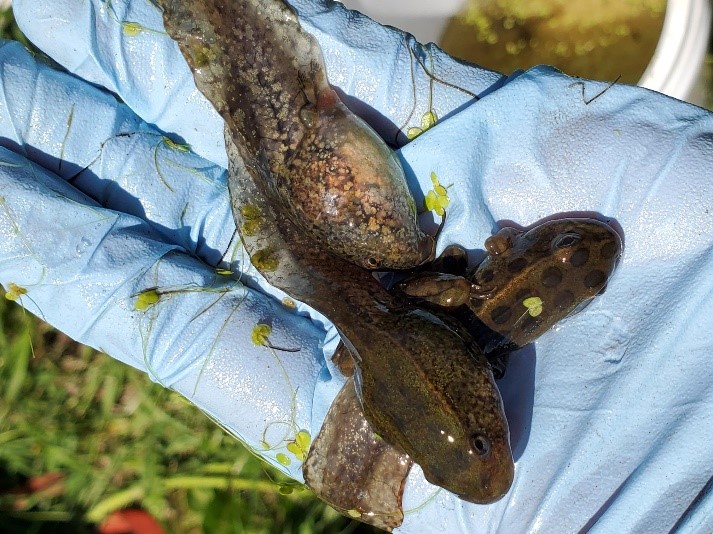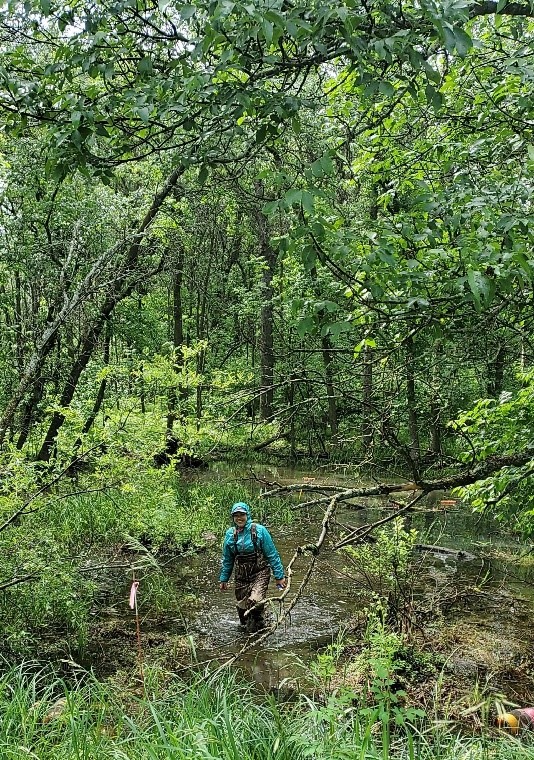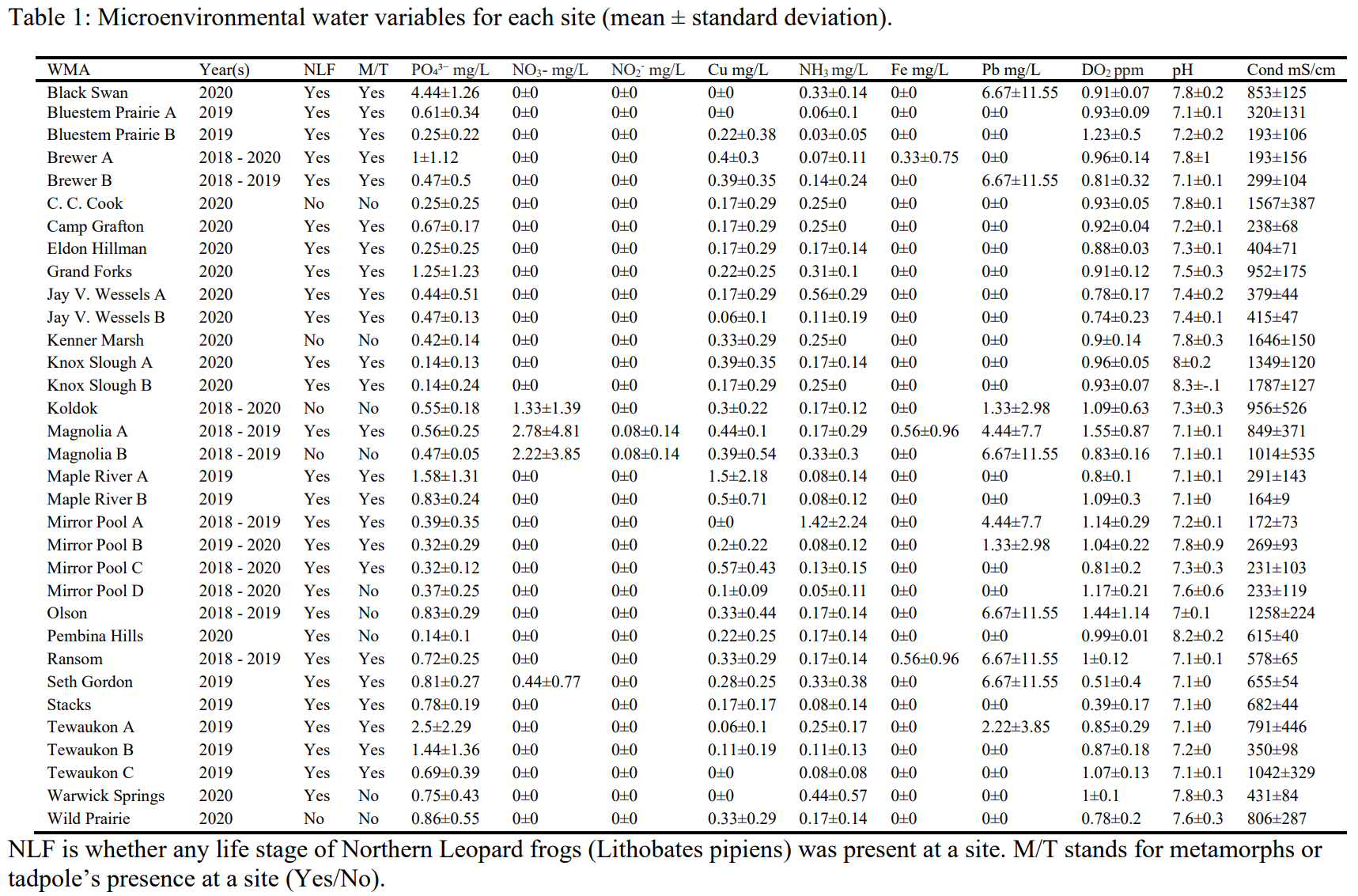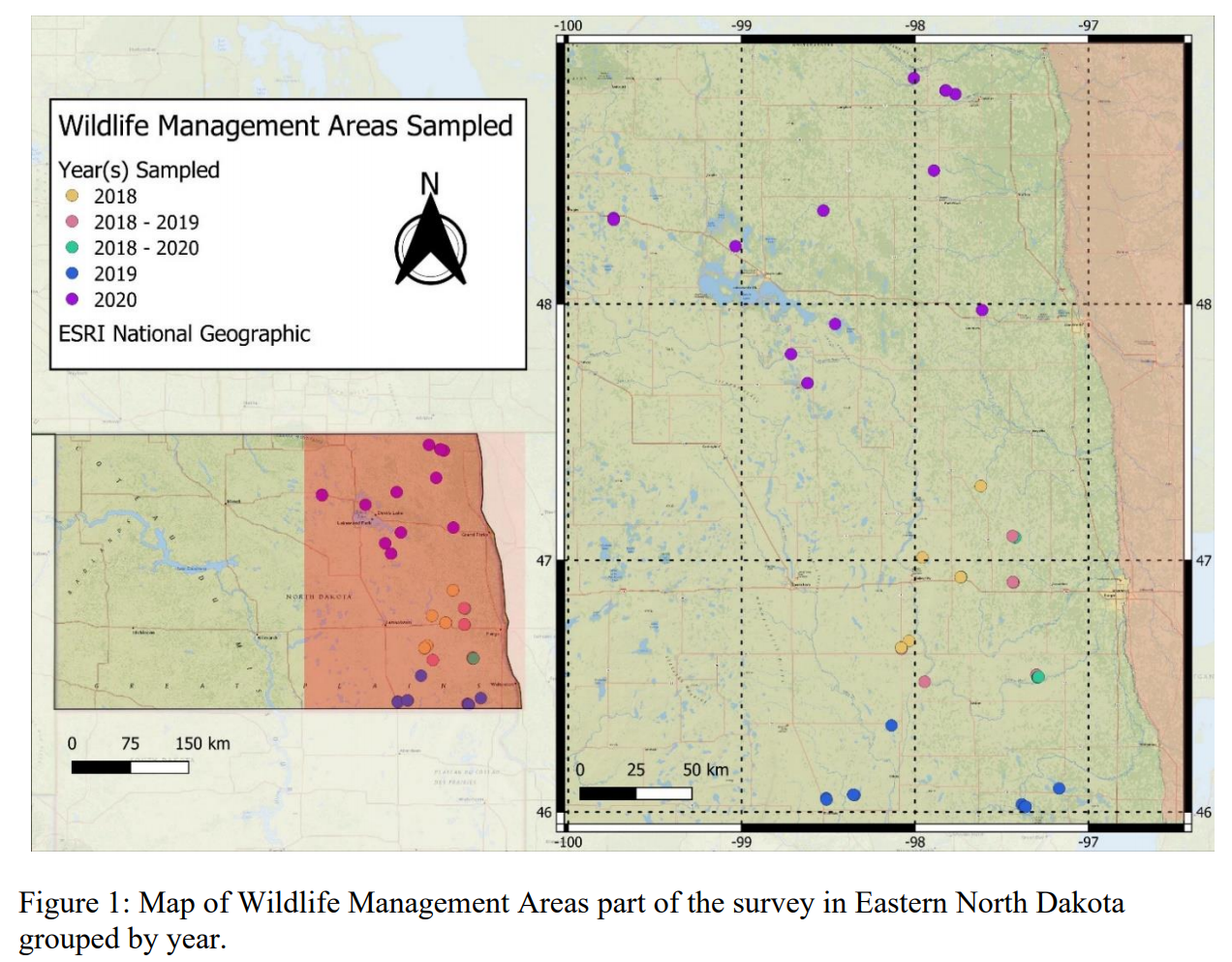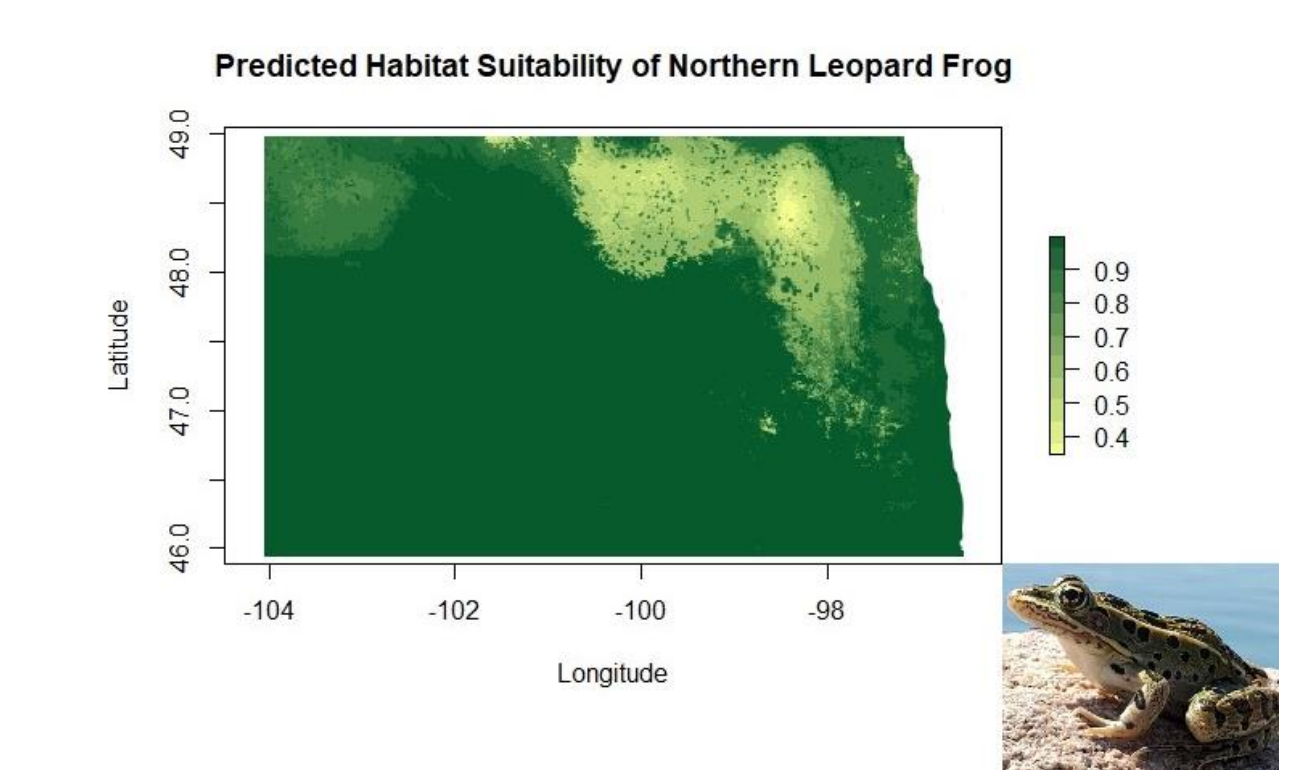Influence of habitat characteristics on amphibian stress and reproductive success in North Dakota
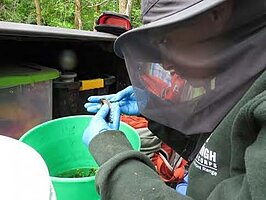
Rebecca Bradley, is in master’s program in the Biological Sciences department at North Dakota State University.
Influence of habitat characteristics on amphibian stress and reproductive
Assessments of habitat suitability provide a necessary framework to guide conservation decisions. This is particularly true for amphibians, as they are experiencing unprecedented population declines and extinction events. Northern Leopard frogs (Lithobates pipiens) are no exception, as they have been observed declining in the central and eastern regions of North America. Large portions of diverse wetlands across the state of North Dakota are being lost to agriculture at unprecedented rates and as a result, habitat for anurans is declining. Larval and visual encounter surveys were conducted to distinguish the essential habitat characteristics that are crucial during each stage of amphibian reproduction. In addition to collection of amphibian data, macro-and micro-habitat data were recorded at each site. Captured individuals had their blood drawn and water-borne corticosterone samples collected to assess this environmental stress. This study found that surrounding developed area impacts larval suitability of a habitat and stress levels. Additionally, there was a near significant positive relationship with variance in phosphate and corticosterone levels. It would be interesting to see if this relationship were to increase with a larger sample size. This research provides an updated suitability model, baseline levels of corticosterone and white cell profiles for a native anuran species, and reference wetland habitat/water characteristic data for Wildlife Management Areas (WMAs) in North Dakota.
Publications:
Jones, Rebecca. 2021. Influence of Habitat Characteristics on Amphibian Stress and Reproductive Success in North Dakota. M.S. Thesis. Biological Sciences, College of Graduate and Interdisciplinary Studies, North Dakota State University, Fargo, ND.
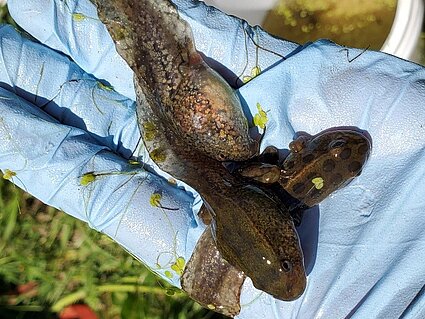
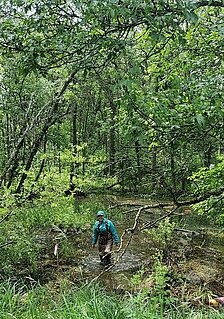
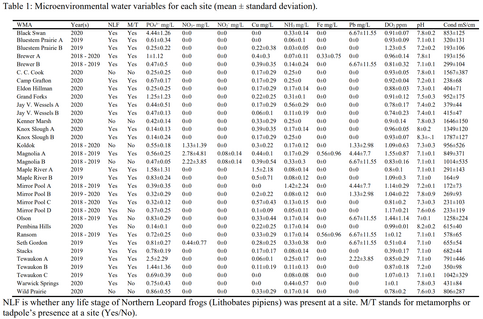
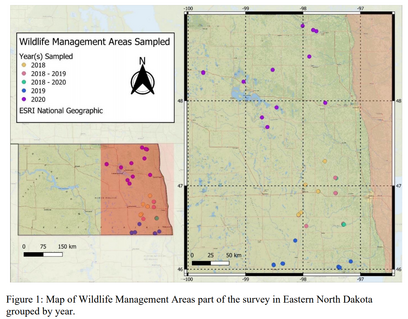
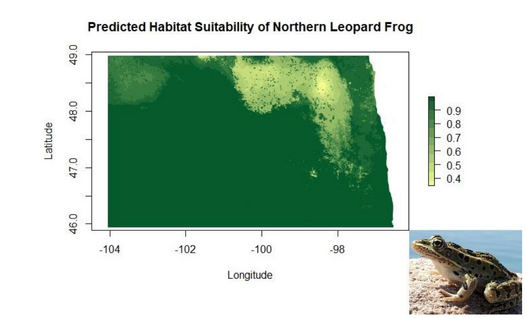

Matthew Smith
Biological Sciences
Office: Stevens 118
Phone: (701) 231-7628
Email: matthew.thomas.smith@ndsu.edu



